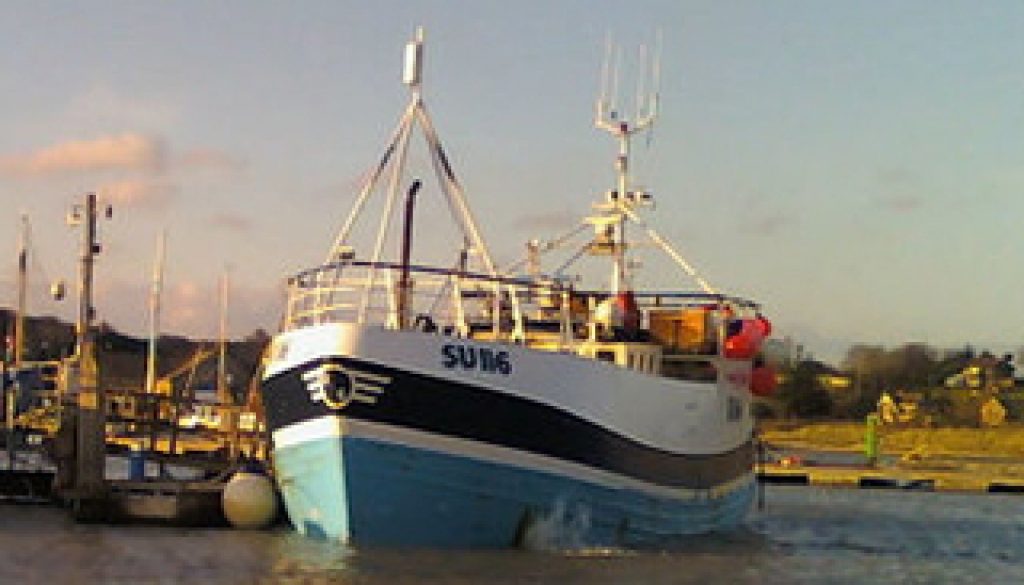Freshwater Five convictions under challenge
Regular visitors to this site will be aware of our interest in the case of the Freshwater Five, convicted in 2011 of attempting to smuggle cocaine into the UK. The Five were jailed for a collective total of 104 years.
The allegations against them were, at best, improbable in the extreme. The Court of Appeal has now heard that new evidence, uncovered in 2018, renders those allegations “simply impossible”.
From the Guardian online today (23 February) we reproduce the following article:
New evidence uncovered since the conviction of the Freshwater Five “transforms” the picture that was presented to a jury more than a decade ago and renders their convictions unsafe, the court of appeal has heard.
The group of Isle of Wight fishermen were jailed for a collective total of 104 years in 2011, after being found guilty of attempting to smuggle £53m of cocaine into the UK. They have maintained their innocence in the years since the conviction, with their battle to have the convictions overturned covered in a Guardian five-part podcast mini-series.
Two members of the Freshwater Five, Jonathan Beere, 51, and Daniel Payne, 46, are this week challenging their convictions, which led to them being jailed for 24 and 18 years respectively for conspiracy to import 250kg of the class A drug on to UK shores.
On the opening day of their trial, the court of appeal heard that new evidence showed it was “simply impossible” for the men to have collected the drugs.
At the original trial prosecution, lawyers argued that Payne – along with skipper Jamie Green, Zoran Dresic, and Scott Birtwistle – collected the vast quantity of drugs out of the English Channel in a fishing boat, the Galwad-Y-Mor, before tying them together and leaving them in the water by Freshwater Bay, off the coast of the Isle of Wight. Dresic was also sentenced to 24 years, while Birtwistle received a 14-year sentence.
Jon Beere, a scaffolding business owner, was found to have acted as a liaison between Green, who was also jailed for 24 years, and the criminal masterminds organising the smuggling.
In 2011, Kingston crown court heard the Galwad-Y-Mor crossed the path of the Oriane, a container ship sailing from Brazil, and slowed down to collect the cocaine in the middle of the night in May 2010. The jury was told that the next day the group had tied 11 holdalls containing the cocaine together using rope, and had deposited them in Freshwater Bay attached to a buoy before returning to land.
But at the appeal hearing on Tuesday, lawyers for Beere and Payne argued that new radar evidence showed that the Galwad-Y-Mor never crossed behind the Oriane and rendered their convictions unsafe. The original hearing heard evidence about the positioning of the vessels from a different source.
Joel Bennathan QC for the appellants told the court that data obtained from a UK Border Agency boat, the Vigilant, obtained seven years later and not examined in the original trial, “transforms the picture that was presented to the jury in 2011”.
He added: “The Galwad-Y-Mor did not, contrary to the evidence at trial, ever get sufficiently close to the origin or the trail of the Oriane to permit the transfer of the drugs.”
In written submissions, Bennathan said: “The correct interpretation of this new data shows that Galwad never crossed behind the Oriane.”
He added that the idea that the Galwad-Y-Mor had been able to “cooper” – a term used to describe goods being transferred from one vessel to another at sea – the drugs in high seas “reduces from being difficult but conceivable to being simply impossible”.New doubt over fishermen’s cocaine smuggling convictionsRead more
The submissions continue: “The possibility of the coopering of the cocaine mid-Channel by the Galwad was a central and determinative issue at trial. Once there are respectable experts mounting credible arguments that would render that coopering all but impossible, how can these convictions be seen as safe?”
Bennathan told the court that the Vigilant data also showed “another relatively small vessel traveling at high speed to Freshwater Bay, where the drugs were recovered and doing so shortly after the Galwad-Y-Mor had sailed nearby,” he told the court, which should be considered “an alternative suspect for depositing the drugs”.
The court heard that data from the Vigilant also showed a surveillance plane flying over Freshwater Bay around the time that the fishermen were said to have deposited the drugs in the water. “And yet there was no report from that surveillance aircraft of seeing anything in the water,” he said. Previously it had been understood that the aircraft could not have been flying over the bay at the moment of the deposit, but “a very recent bit of disclosure now means that argument is no longer sustainable,” he said.
Submissions from the prosecution, which will argue the men’s convictions are still safe, are expected to start on Thursday.
Bennathan said the evidence they were relying on to defend the appeals “cannot simply plug the gaps caused by what we now know”, adding: “In consequence, it will be our submission, of course, that both these applicants’ appeals leave should be given, and the appeals should be allowed.”
Speaking outside court before the hearing, Payne said being back at court felt “surreal”, and brought back negative memories of the original trial.
While he believed the case for appeal was strong, he added: “Me, personally, confidence in the British justice system is pretty low to be honest.”
The hearing before Sir Julian Flaux, Mr Justice Andrew Baker and Mr Justice Calver is due to conclude on Thursday afternoon or Friday morning. The ruling is expected to be reserved until a later date.
The original article can be found HERE.

![16[2]](https://mojoscotland.org/wp-content/uploads/2024/06/162-1024x768-394x330.jpg)

